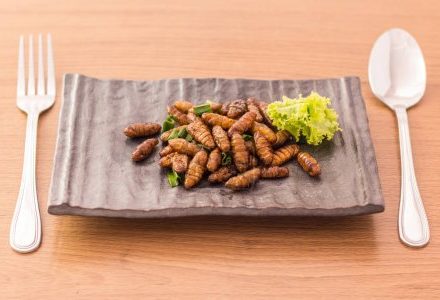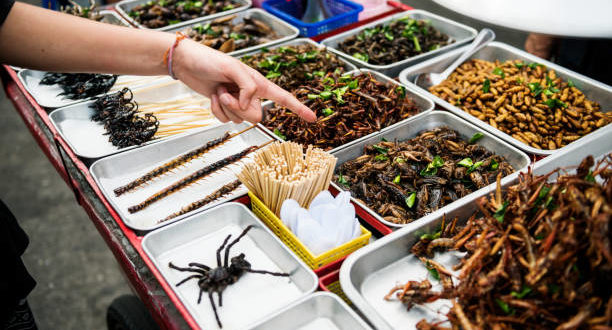A future diet based on insects
A few weeks ago, the European Commission authorized the marketing of a house cricket powder. The Vietnamese company “Cricket One” has filed a request to use this powder in certain foods such as pizzas, bread, cereal bars, biscuits or chocolate confectionery.
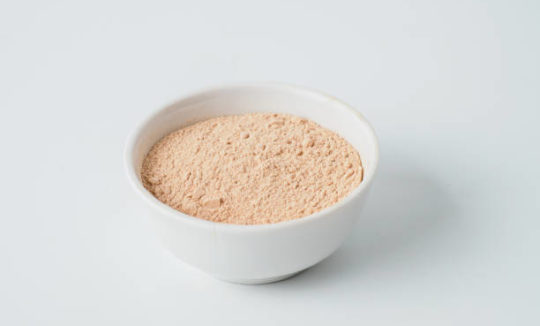
Entomophagy is the act of consuming insects, a practice that will not impose itself in Europe in the immediate future, the placing on the market being regulated. Worldwide, it is estimated that there are approximately 2 billion people who eat insects.
In France, some independents already offer recipes such as the insect-based burger. They buy the insects from a local organic breeder, have been previously killed in the freezer, then passed through the dehydrator and then sold plain or flavored. They are packaged in small bags, they do not require any cooking before tasting.

Other independents also offer insects on the menu, these are dehydrated, more precisely ready to be tasted as an aperitif like crisps or sprinkled in dishes like crispy bacon. They also have so-called “transformed” products: pasta with crickets, terrine of insects and mushrooms, etc. Their aim being to show that they can be incorporated into different diets and not just in television survival games.
As for the ecological question, the primary motivation in the subject of insects as food, this would have multiple advantages: rapid reproduction cycles, small area for breeding, less greenhouse gas emissions, nitrogen-rich manure would make it possible to manufacture natural fertilizers, etc.
3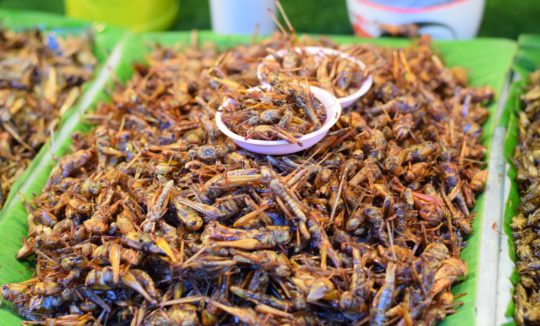
According to nutritionists, the proteins contained in certain insects are of good quality, close to that of meat. If we compare them to vegetable proteins, we note good nutritional intake: the fattier species are richer in Omega 3 while there is less in meat; fiber level there is a small shell composed of chitin (not assimilated by the body) but good for transit and finally, there are also many minerals and vitamins.
But some uncertainties remain: depending on the species consumed, some may contain toxins (venoms or antinutritional factors that can prevent the absorption of vitamins); others could be infected with parasites or be contaminated with heavy metals, pesticides, etc. It will then be necessary to ensure that the insects absorbed are healthy.
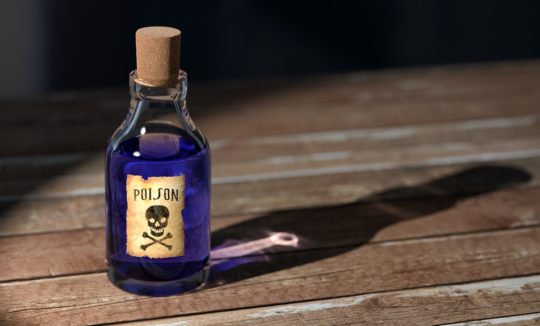
It’s hard to imagine a near future with these little beasts for only meals. There is a good chance that the consumer (mainly European) will not be able to consume it without a minimum of “camouflage”. In which case, there is a risk of finding “ultra-processed” products, that is to say fried, flavored, colored, sweet, etc. As a result, one could wonder about these foods which would surely be more harmful than beneficial. for health.
For now, insects are not a miracle solution to current environmental problems.
